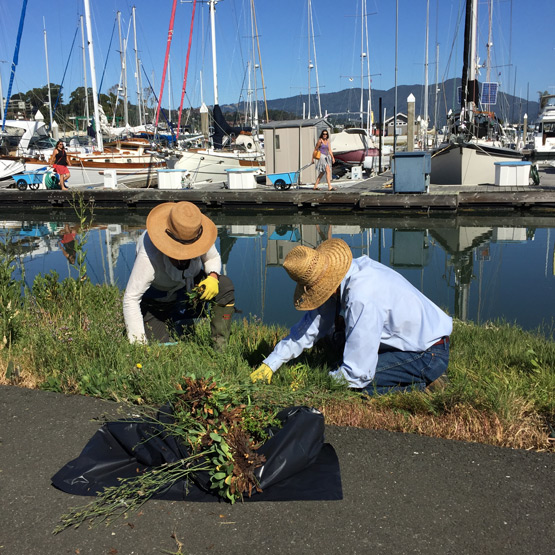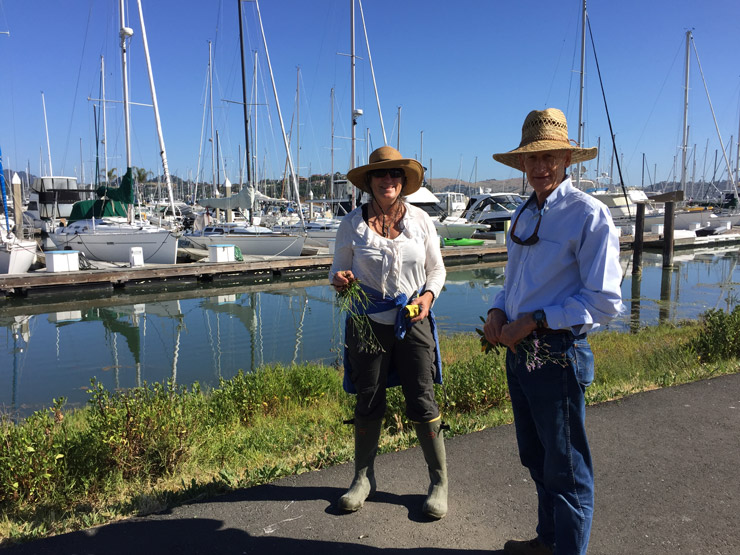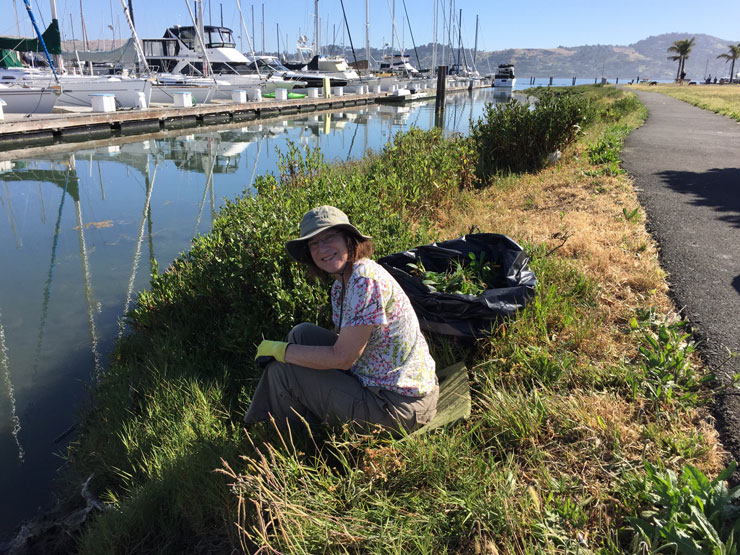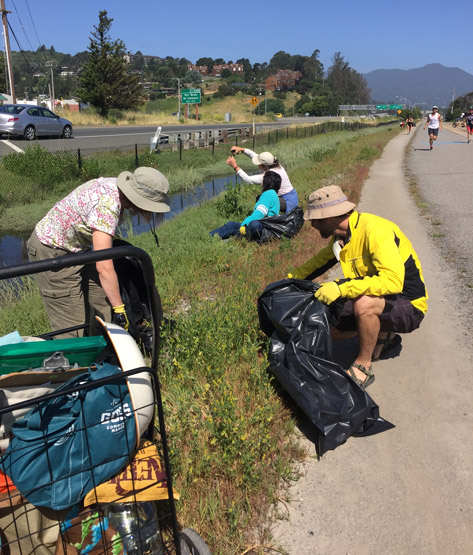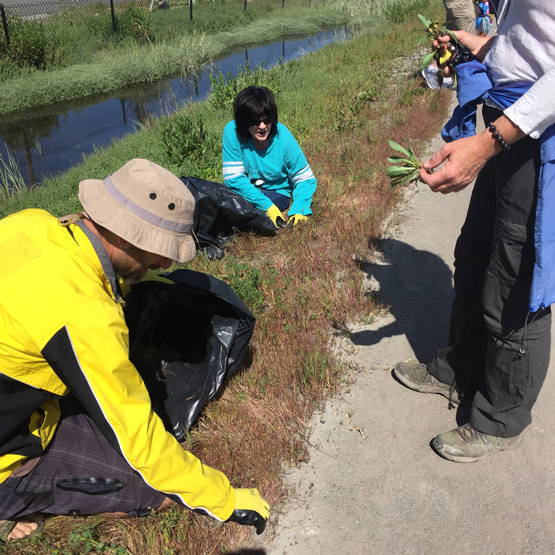Weeds are super adaptors. In urban settings weeds thrive under the most meager of growing conditions—moving into bare patches and vacant lots, filling cracks in the pavement and even pushing up through blacktop. In more natural habitats, biodiversity can take a hit as thuggish weeds crowd out native species. While getting rid of weeds isn’t rocket science, it’s all too easy to make rookie mistakes. Some weeds can regenerate from even the tiniest bit of root left behind, creating a sort of Hydra super-weed. Or wait just a bit too long to tackle a weeding project—so that the plant in question flowers and sets seed—and you’ll suffer the adage: “one year’s seeding means seven years’ weeding.”
Waldo Point Harbor residents are invited to join a Weed Pulling Party
Saturday June 17 — 9 a.m. to noon — meet in front of the WPH office
Interested residents, RSVP to sandy@sequoialand.net or 415-331-3393, ext 14
Bring gloves and tools—drinks and snacks provided by Harbor Management.
Alternately—same day, same time—the California Invasive Plant Council (CAL-IPC, pronounced “Cal Ipsy”) is offering the following one-day training workshop for volunteers:
What: Weed Management Training for Volunteers
When: 9 a.m. to 3 p.m. including lunch break and afternoon session
Where: Mill Valley Community Center
RSVP required as space is limited. Learn more and register.
Think you might like to volunteer next year for the removal of sea lavender from our immediate shoreline (see Invasive Sea Lavender Threatens Our Shores, activities which have wrapped for 2017)? Or does the prospect of tackling our backyard weeds—without the use of harmful chemical herbicides—pique your interest to volunteer for weed removal beyond our immediate community? This course provides the basics—the better for you to manage weeds rather than let weeds manage you.
from CAL-IPC: Trainings are free of charge, but please pre-register here!
Do you volunteer in local natural areas to control invasive plants, or would you like to? Whether you are an experienced wildland steward or are just thinking about getting involved, join us for a training workshop for volunteers! Cal-IPC is partnering with local experts to present these trainings. Program participants will gain skills in weed management and volunteer coordination for stewarding natural areas in their local community, and have the opportunity to network with a range of organizations working in the area. Topics will include:
- Biology and ecology of invasive plants
- Management tools and best practices
- Strategies for success over time
- Using your smartphone as a tool to map weeds
- Collaborating and sharing information
- Resources for plant ID and control methods
- Best practices for not spreading weeds
Cal-IPC’s mission is to protect California’s lands and waters from ecologically-damaging invasive plants through science, education and policy.
Previous post: Invasive Sea Lavender Threatens Our Shores
